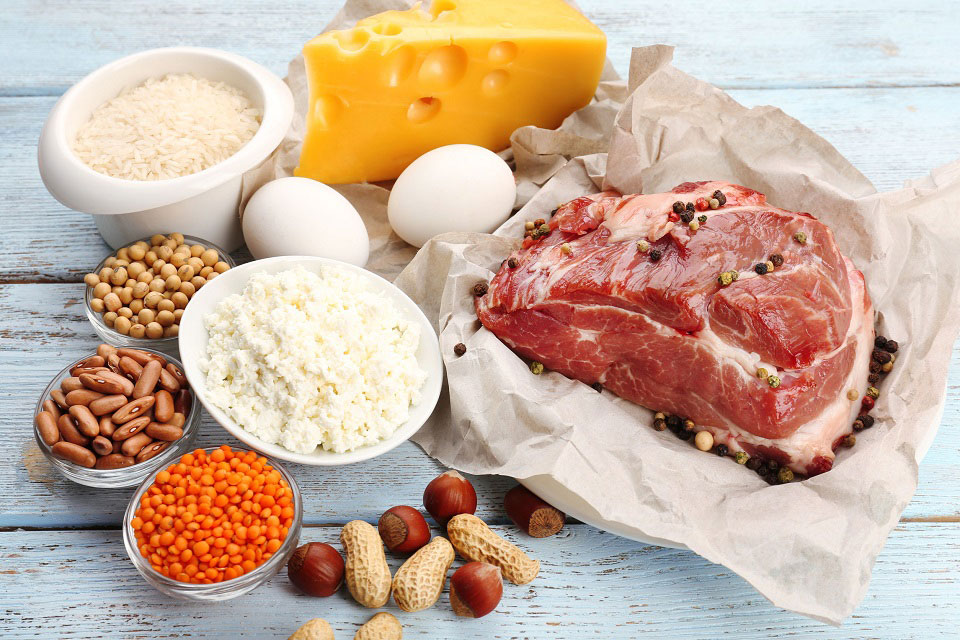——Talking about the Misunderstanding in the Concept of Diet in Patients with Chronic Kidney Disease

Patients often complained at outpatient clinics, “I haven’t eaten lentils for a year”; “I want to eat legumes now.” I can only reluctantly say, “I did not let you eat legumes ah”? ! ! !
Since I was a medical student in the 1990s, the textbooks I read have advocated that patients with chronic kidney disease should mainly eat high quality protein. But what does high quality protein mean? There are many words in the book that are unknown. Some books simply suggest that it should mainly be animal protein, and instead it is not recommended to eat vegetable protein. In today’s primary hospitals, doctors often advise patients with kidney disease not to eat vegetable protein.
Does the patient with chronic kidney disease mainly eat animal protein or vegetable protein?
In fact, previous textbooks do not recommend eating more plant proteins based on some research from abroad. These studies have found that plant proteins contain fewer essential amino acids, are more likely to cause amino acid metabolic disorders, and produce too much nitrogen-containing waste products in the body, and therefore may feel adversely affected in patients with renal insufficiency. However, when you read these studies carefully, you can find that the number of patients in these studies is not large, and the design is not rigorous.
In recent years, studies on soybean and soybean protein have found that soybean protein is actually rich in essential amino acids. Among the eight essential amino acids required by human body, lysine content is higher than animal protein, methionine is slightly lower, other essential amino acid content and animal protein No difference. In addition, soy isoflavones are contained in the non-protein components of soybeans, and soy isoflavones have been shown to have renal and cardiovascular protective effects.
There are doctors who divide normal volunteers into two groups. One group consumes animal protein and one group consumes equal amounts of soy protein. Interestingly, the results showed that after the consumption of animal protein, renal blood flow increased, glomerular filtration rate increased, urinary albumin clearance increased, the burden on the kidneys was increased after eating animal protein. However, after the consumption of soy protein, the glomerular filtration rate remained unchanged or even decreased, and the urinary albumin clearance rate decreased, so the burden on the kidneys decreased.
What are the results of the current research on chronic kidney patients comparing the consumption of plant protein with animal protein?
Studies on diabetes have found that the renal function of patients who consume vegetable protein remains better than that of animal protein, and kidney disease worsens more slowly. In addition, because soy protein contains less methionine, it can also reduce hyperhomocysteinemia associated with diabetic nephropathy.
For patients with nephrotic syndrome, after eating soy protein for 8 months, the patient’s proteinuria was found to be improved. The main reason for this is that soy protein contains trace angiotensin receptor antagonists, and this ingredient can inhibit glomerular hyperfiltration and reduce proteinuria. These patients also had better control of lipids, and studies have found that the lipid-lowering effects of soy are related to the soy alcohol extracts.
We know that patients with renal insufficiency often need to control the total daily protein intake. A number of foreign studies have found that patients who consume animal protein have higher blood urea nitrogen. A study of 3972 patients with chronic renal insufficiency showed that soy protein is more conducive to controlling acidosis in patients with chronic renal insufficiency, is more conducive to controlling hypertension, and is more conducive to delaying deterioration of renal function. Because phosphorus in soybeans is organic phosphorus, and humans lack phytase-degrading enzymes, the body can only absorb 20-40% of the phosphorus in vegetable protein; on the contrary, phosphorus in animal protein is inorganic phosphorus, and human body absorbs almost 100%, so Eating plant protein is also more conducive to controlling serum phosphorus levels, thereby reducing a series of complications due to hyperphosphatemia.
We all like to eat beans. Now we also know that soy can reduce proteinuria, blood pressure, and control blood phosphorus in patients with chronic kidney disease. It can also improve the patient’s blood lipids, enhance the body’s antioxidant capacity, and reduce cardiovascular disease in patients with kidney disease. disease. Moreover, it is even more critical that at least soy protein is not inferior in retarding the worsening of renal function compared to animal protein, on the contrary it has an advantage. Therefore, patients with chronic renal disease with normal renal function do not need to control the intake of plant proteins and can completely eat plant protein and animal protein. In patients with renal insufficiency, in the case of total protein intake control, the proportion of protein consumed in the diet should also be increased, rather than eating it out of the wrong way.
This site is recommended to eat Taizhou ® protein powder, which is based on soy protein isolate as the main raw material, supplemented by natural ingredients eggs, millet, barley, rice, etc., contains high protein, high dietary fiber, good absorption, promote intestinal function, It does not contain lactose, sucrose, glucose and chemical preservatives. It is suitable for all groups of people (including diabetics, three-high populations, ulcer patients, etc.) to enhance immunity, prevent and control constipation, relieve aging, promote the repair of human tissues, and enhance satiety meal.
References
References, interested friends can read.
1. Rysz J, Franczyk B, Cialkowska-Rysz A, et al. The Effect of Diet on the Survival of Patients with Chronic Kidney Disease. Nutrients 2017;9(5) (currently in electronic format only)
2. Goraya N, Wesson DE. Dietary interventions to improve outcomes in chronic kidney disease. Curr Opin Nephrol Hypertens. 2015;24(6):505-510
3. Gutierrez OM, Muntner P, Rizk DV, et al. Dietary patterns and risk of death and progression to ESRD in individuals with CKD: a cohort study. Am J Kidney Dis 2014;64(2):204-213
Leave a Reply